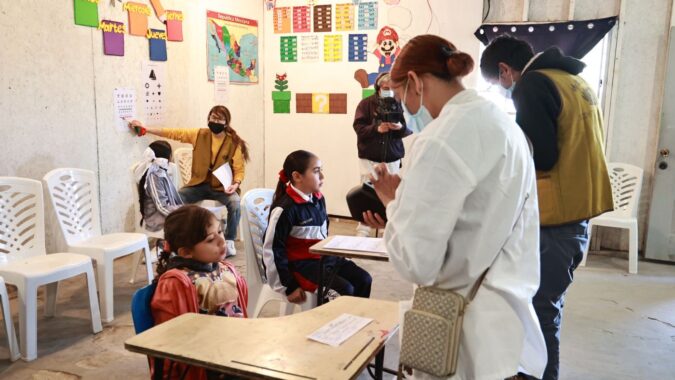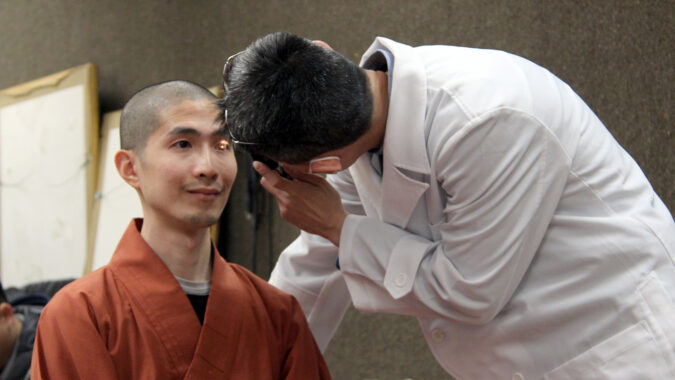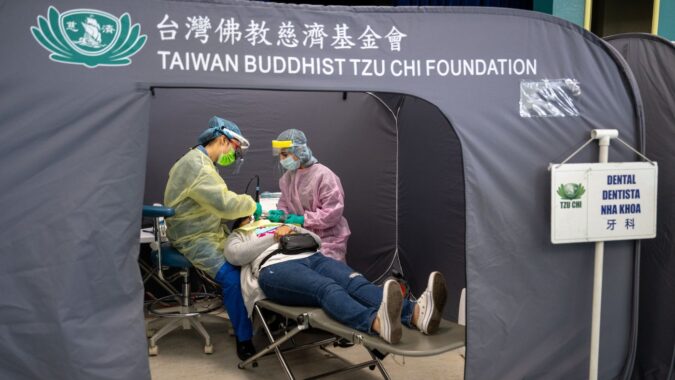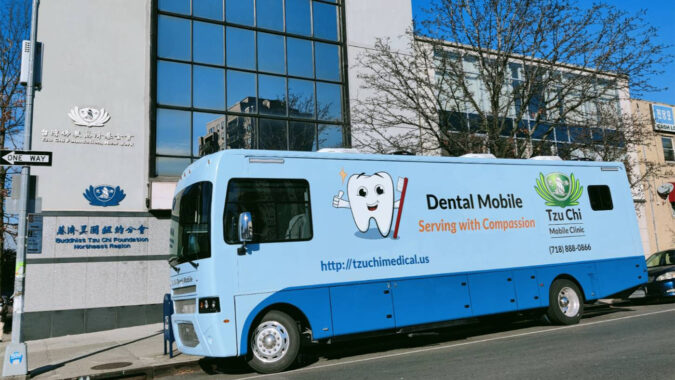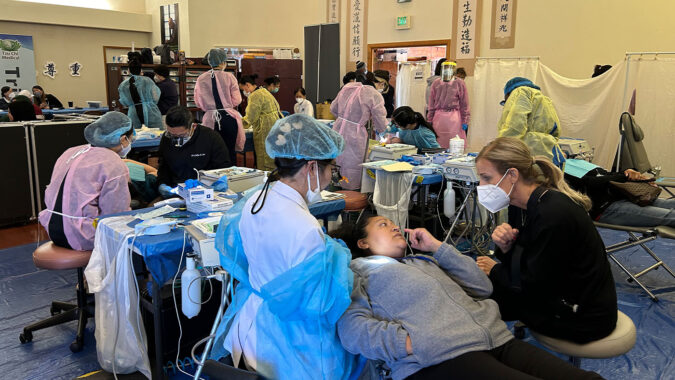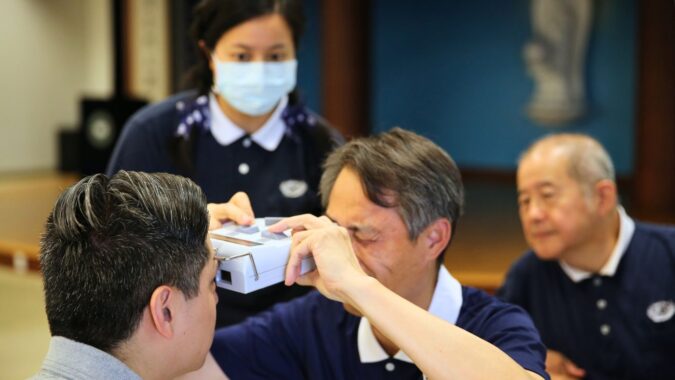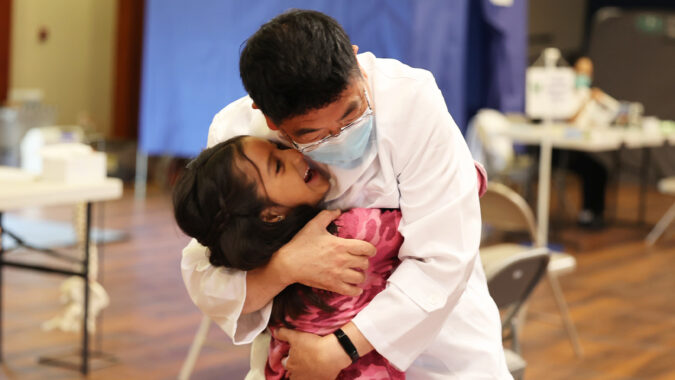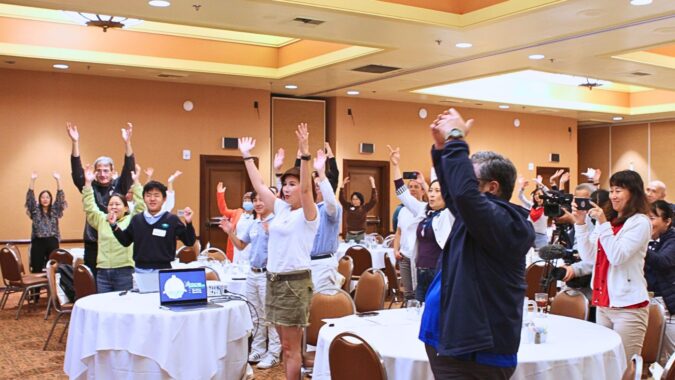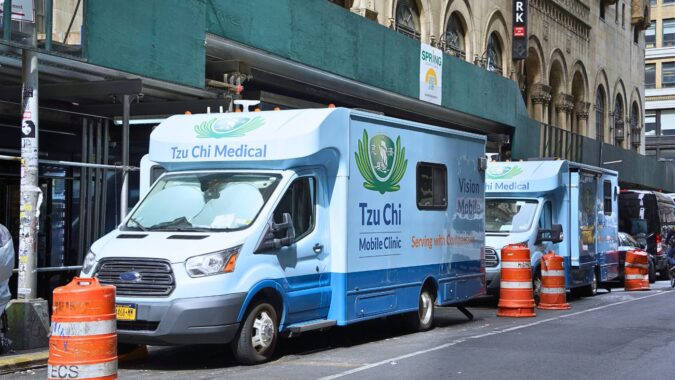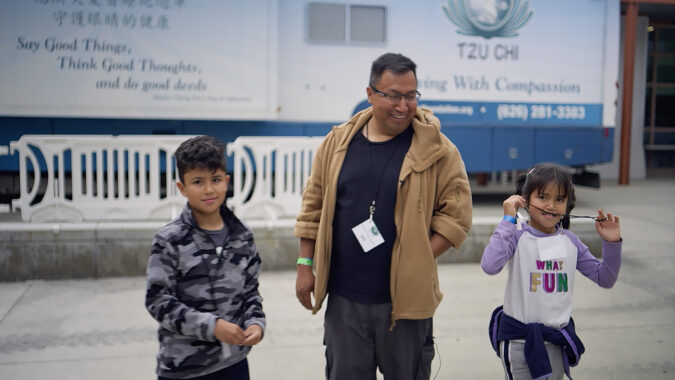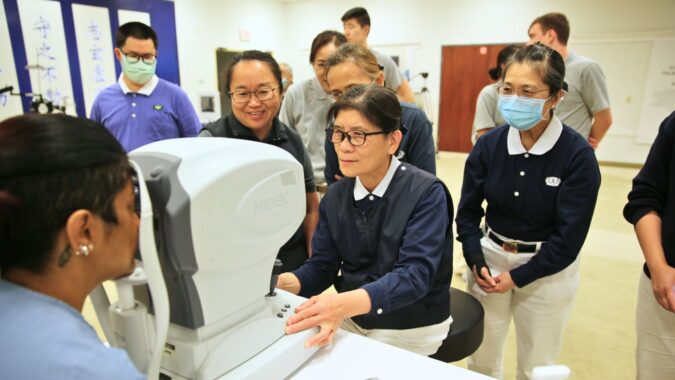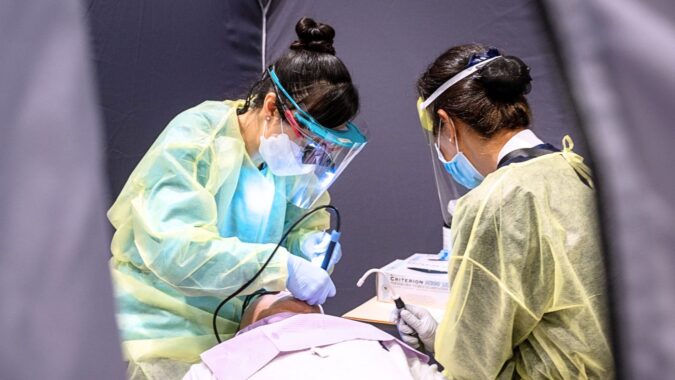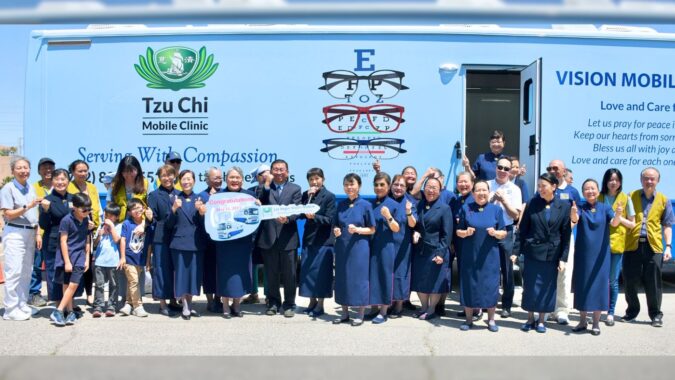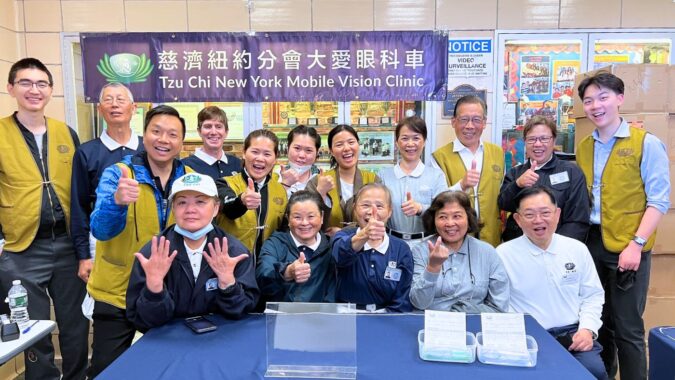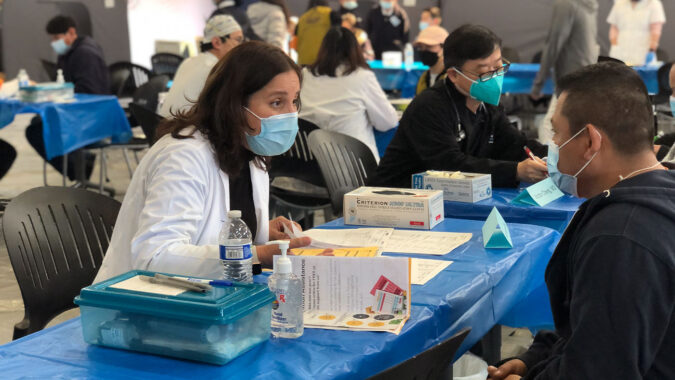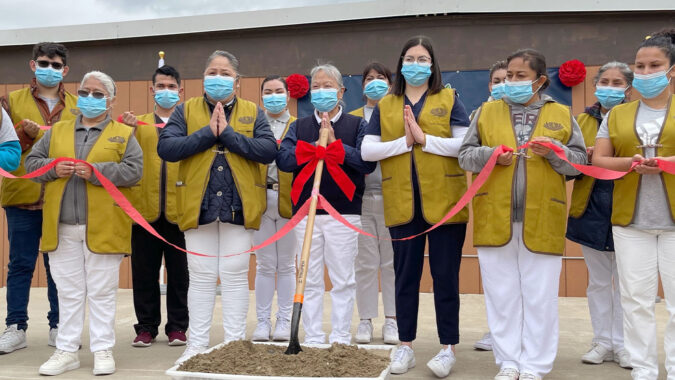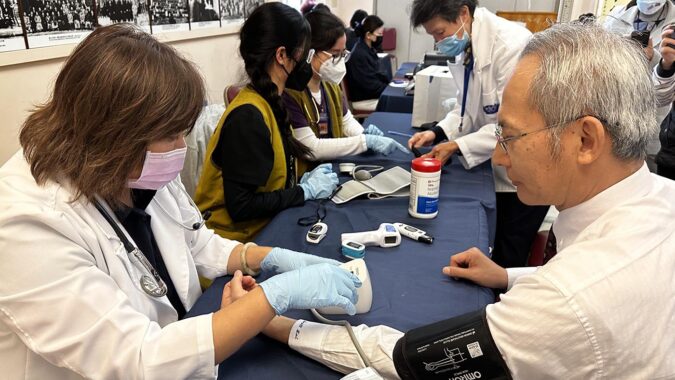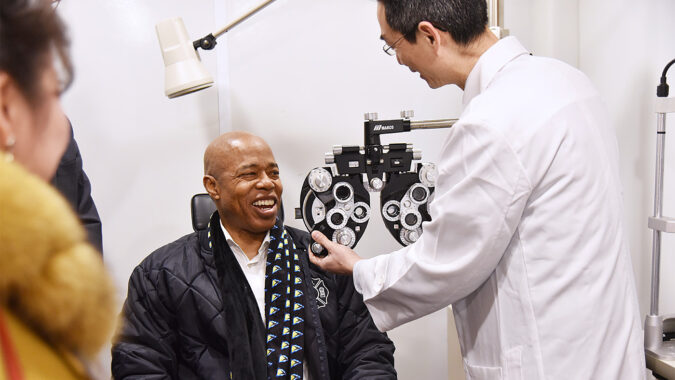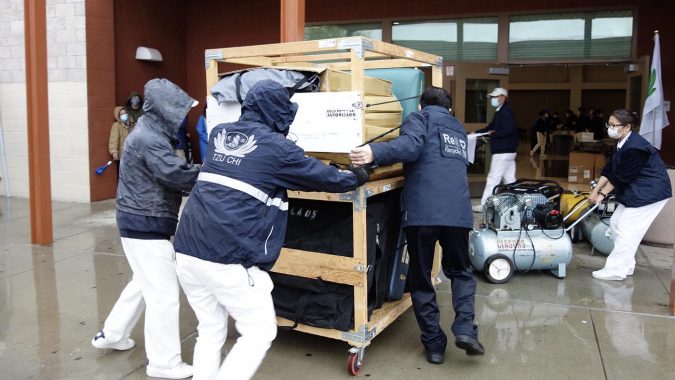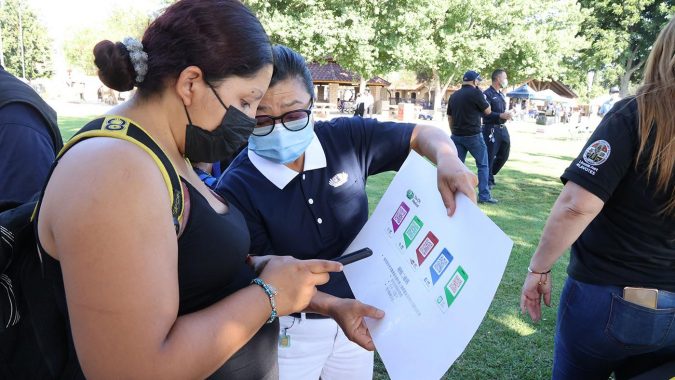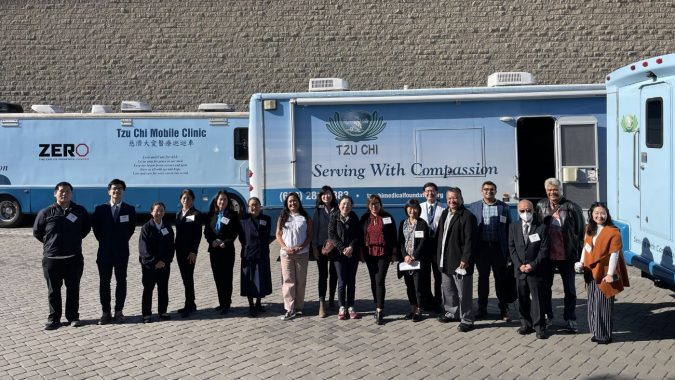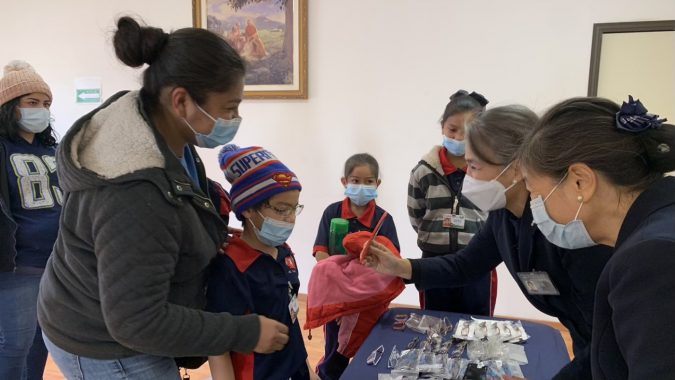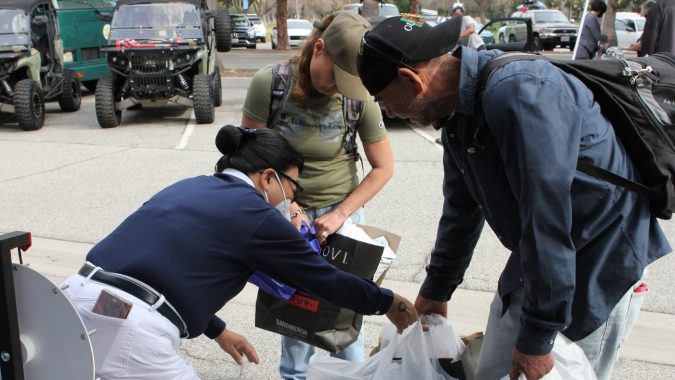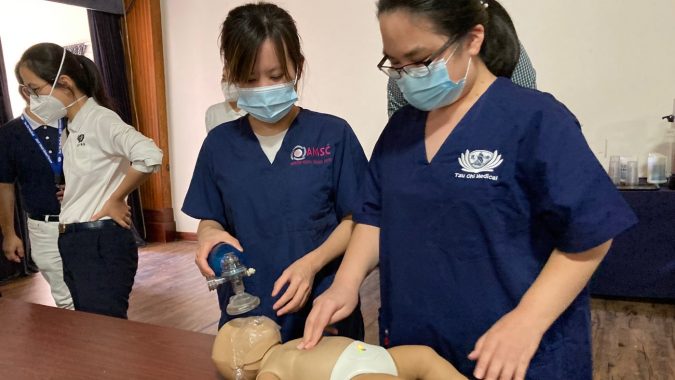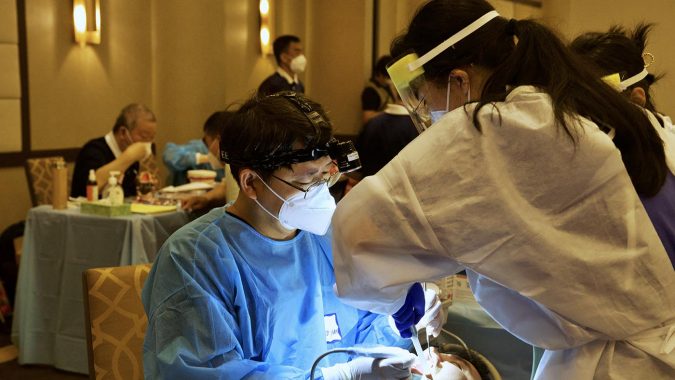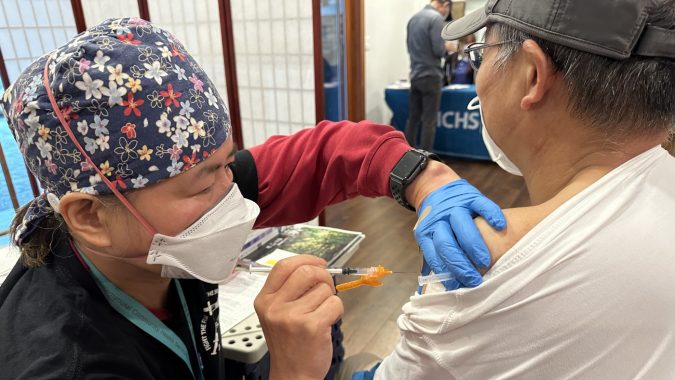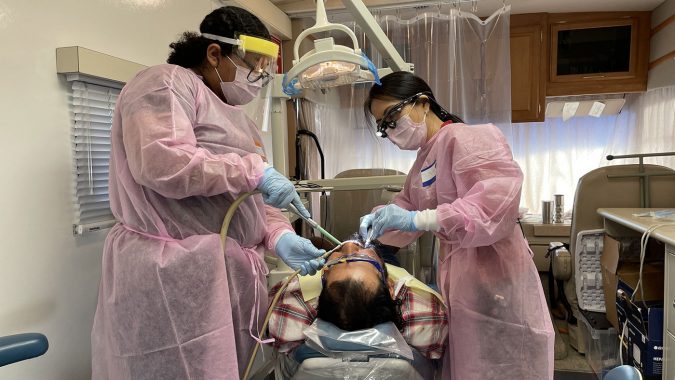Written by Teresa Huang
Traducido por Diana Chang
Edited by Dilber Shatursun
Dear Master Cheng Yen, Masters at the Abode, and my dear friends,
Happy new year! We are just beginning 2021, yet 2020 was a deeply educational time, especially for me. When catastrophes occur, we must awaken to the warnings our world is bringing to our attention; especially now, when hospitals across southern California have been crippled by the spread of COVID-19.
First of all, let me share the current situation at the Ronald Reagan UCLA Medical Center, the hospital where I work. The number of our COVID patients is about 80 to 100 patients on average per day. About half are in intensive care, roughly 15% of the patients use Extracorporeal Membrane Oxygenation (ECMO), and almost every patient in the intensive care unit is intubated.
After the four-day weekend for new year’s, I returned to work and learned that the situation at our hospital had taken a turn for the worse: many temporary beds were set up [to accommodate a new influx of patients] and there were more instances of two patients in a single room.
The rate of children being sent to the hospital due to COVID-19 infection was very low compared to that of the adults. The only place in our hospital left with vacant beds was the pediatrics department. In order to cope with the hospital bed shortage, and reduce the number of adult patients being placed in every corner of the emergency room, we would just wait for inpatient beds.
Nurses from the pediatrics department also tried hard to cooperate with the rest of the hospital on this front. Of course, tense moments played out nevertheless. The hospital’s daily and hourly policy changes taught me to accept impermanence as a norm. However, it caused a great deal of dissatisfaction and psychological burden for the team at the pediatrics department.
As a supervisor in 2020, I’ve found my greatest challenge to be how to care for my team’s morale while rolling with the hospital’s constantly changing policies. What I often think of is how to achieve a win-win situation, and it also makes me better understand the purpose of life and what is at the core of being a medical professional. As long as I keep moving forward with the philosophy I believe in, I can do the right thing.
Under the guidance of Master Cheng Yen, I have also gained a deeper understanding of what it means to walk amongst my fellow brothers and sisters. In fact, I’ve realized that no matter where I am, every moment is the right time to practice compassion and joy. Through shocking disasters like COVID-19, it not only tests the weakness of human beings, but it also challenges the strength of human nature.
One day, I woke up and I couldn’t smell perfume or coffee. That was a wake-up call. I scheduled my COVID-19 test the very next day. In the afternoon, I received my test results. On the same day, 13,756 people tested positive for the novel coronavirus in Los Angeles County. I found myself one among them, and had to isolate for the next ten days.
Though I was shocked at first, I soon accepted it. In fact, it’s not my situation or recovery that concerned me much, but that of my colleagues who I had been in contact with over the past few days. I immediately texted the colleague with which I work closest. Was he experiencing any symptoms? Fortunately, he tested negatively.
After the quarantine period, if there are no symptoms, such as fever and coughing, I would be allowed to return to work with my colleagues. Once I got through this period, for the next 90 days, thankfully, I would not need to get tested again.
I, like all of you, learned that if a person comes into contact with a confirmed positive patient, going for a test immediately afterwards may still result in a negative outcome even if you have been infected. Because the incubation period of the virus is 5-7 days, symptoms do not normally appear until a few days after infection – making this particular virus as dangerous as it is.
In the United States, the responsibility to manage your condition lies on the individual, with little outside governance. Daily calls from the local health department do not come. Unless you disclose it yourself, your neighbors will not know about your diagnosis. This is very different from Taiwan’s handling of confirmed cases. It also reflects the difference in handling the pandemic in the East and West.
In addition to opposing wearing masks, many oppose the policy that restaurants can only serve take-outs and stay-at-home orders. These and other factors have led to a severe and persistent pandemic in the United States. I do believe some people are still going around even when diagnosed positive. I urge everyone to be careful when going outside and take the proper precautions to protect themselves.
During the ten days of my self-quarantine, the only symptom I suffered was a loss of smell – nothing else. I consider myself lucky for that, especially compared to my friends and colleagues, and many patients. In Christianity, I often see witnesses sharing incredible and powerful testimonials of faith. Yet, as a Buddhist, I want to share my diagnosis as a testimonial too, and how vegetarianism spreads the word of the Buddha.
Since the outbreak in March, I have changed my diet and become a vegetarian. After becoming one, I can feel that my body is lighter – healthier even – because I haven’t suffered a cold since March. I felt the power of this magical remedy. Compared with my friends and colleagues who were not vegetarians, my symptoms were much milder. Apart from no sense of smell, there were basically no other physical consequences I suffered.
It turns out that being a vegetarian can also enhance immunity. I think that the virus residing in me wants a chance to be spread among others, but it was unlucky to live in a body that’s not suitable for its spread. In a way, I even feel sorry for it, so I speak to it every day: “let us live together peacefully, I will recite a scripture to you every day, so that even if you can’t benefit from my body, at least we can coexist peacefully together.” Therefore, during the ten days of self-isolation, I coexisted peacefully with the virus, and I felt that the time passed was fortunate and fulfilling.
After returning to work last Tuesday, I got vaccinated the following day. Everyone must find it strange that my body should be immune to the virus, so why should I get the vaccine? This is the advice from the hospital. Because COVID-19 is an unprecedented virus, we don’t know how long this immunity can be maintained in my body, so vaccination can continue my good health in the face of the virus.
In addition to having strength, what’s best now is to have some form of immunity. The mutation of the virus is as predicted – just like our influenza virus has been mutating every year. The most important task now is to maintain a strong immune system that can fight off all viruses. Therefore, maintaining immunity should start from our lifestyle.
For example, in the vegetarian diet, we must eat enough nutrients, especially plant proteins, to exercise every day, and to ensure sufficient exposure to the sun to get vitamin D; at the same time, to relax ourselves, because stress is the enemy of immunity. Also, an apple a day really can keep the doctor away! Eating a balanced vegetarian diet, along with many fruits and vegetables, I am happy to enjoy this snack every day and have done so for the past year.
If it wasn’t for the COVID-19 pandemic, I would have been retired a few days ago, at the end of December. Two years ago, I went to the Republic of the Congo to participate in a medical outreach. Since then, I have vowed from the bottom of my heart that I must go to Africa again in my lifetime to serve and to heal. This also made me realize that my plans cannot keep up with the changes and the impermanence of life.
I will not forget my mission, but to complete the mission, I must maintain a healthy body. I will continue to work hard toward this goal and strive to achieve my aspirations in Africa.
I’m very grateful that I am a Buddhist. Especially from Master’s teachings, I learn bit by bit; even when encountering difficulties and challenges, especially as the pandemic spreads. The accumulated learnings are used to observe the causes and conditions, not being afraid of troubles, and always living with peace of mind. After understanding that, I am able to let go and believe that everything happens for a reason.
I’m very grateful to all my Tzu Chi family, who often messaged or called me with warm and caring greetings during my isolation period. This made me feel love from our Tzu Chi family, and I am happy to say I didn’t feel lonely at all. It was touching that so many people cared and sent blessings. I’m truly grateful to everyone. By sharing all this, I will continue to pray and bless the people affected by the pandemic.
Last but not least, I want to share with you a quote I saw a few days ago, in the hopes it’ll bring some encouragement to everyone (it’s also one of my favorite quotes):
Ask not for good health, but for wisdom and acuity; ask not for a lighter burden, but for greater strength; ask not for everything to go as one wishes, but for perseverance and courage.
Dharma Master Cheng Yen
Only in the face of difficulties and challenges will we grow, and we will be able to realize the impermanence, emptiness, and selflessness in Buddhism. Life is impermanent, but because of the impermanence, everything will pass, just as 2020 is now behind us.
When the New Year comes, my colleagues will ask each other about their New Year resolution. They used to share their weight loss plans. Now, I would say, our top goals are staying healthy. Money is not everything, but without it, there are less possibilities. But without a healthy body, even if we do get all the wealth in the world, others cannot help us when we fall ill. So, having a healthy body is having real wealth.
I hope 2021 will be a healthier year, and I hope everyone can take good care of themselves. I wish you all a happy new year with good health, joy, and gratitude.

